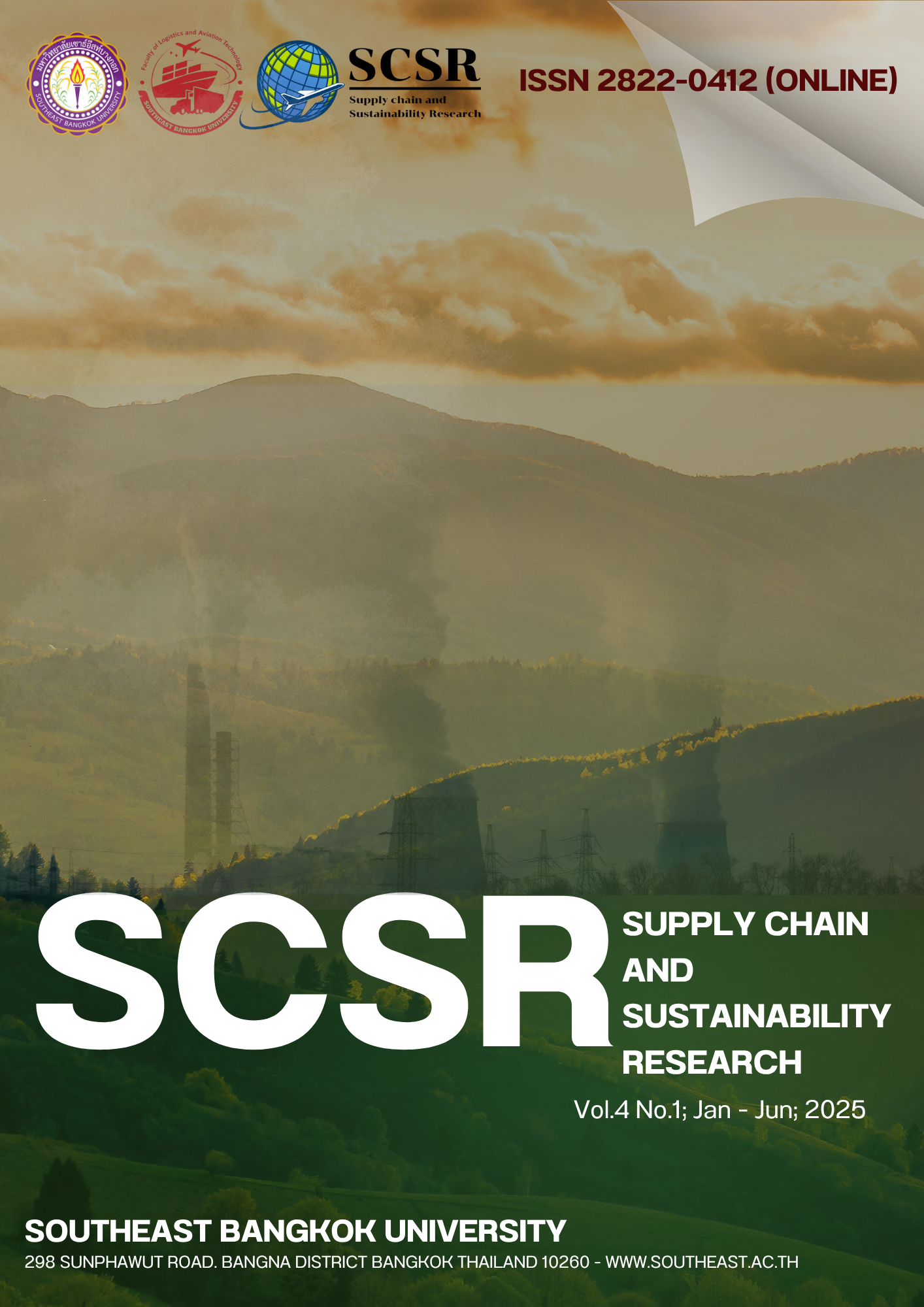Enhancing Data Privacy Compliance Through Logistics Service Quality: A Strategic Framework for Thailand’s Logistics SMEs
Main Article Content
บทคัดย่อ
This study investigates the causal relationships among logistics service quality (LSQ), customer confidence (CFD), and the intention to comply with the Personal Data Protection Act (PDPA) within small and medium-sized enterprises (SMEs) in Thailand's logistics sector. It hypothesizes that customer confidence functions as a mediating variable linking LSQ and compliance intention. A mixed-methods research design was adopted. The quantitative phase involved data collection from 400 participants using a five-point Likert scale questionnaire. Data were analyzed through structural equation modeling (SEM). The qualitative phase comprised in-depth interviews with 30 executives and subject-matter experts, with data analyzed using thematic analysis.
Quantitative findings reveal that LSQ has a statistically significant positive influence on CFD, which, in turn, significantly affects the intention to comply with the PDPA. CFD is confirmed as a full mediator between LSQ and compliance intention. The model demonstrates excellent fit indices (CFI = 1.000, RMSEA = 0.000, GFI = 0.993). Qualitative results highlight key organizational development strategies, including PDPA training, data governance practices, cybersecurity integration, and the implementation of ISO/IEC 27001 standards. Based on the empirical evidence, this study proposes a three-step strategic framework to enhance PDPA compliance among SMEs: (1) optimizing logistics processes, (2) promoting transparency in data management, and (3) developing standardized procedures aligned with the law. This framework aims to foster customer trust and encourage sustained compliance, while supporting the United Nations Sustainable Development Goals (SDGs 9, 12, and 16).
Article Details

อนุญาตภายใต้เงื่อนไข Creative Commons Attribution-NonCommercial-NoDerivatives 4.0 International License.
บทความนี้ได้รับการเผยแพร่ภายใต้สัญญาอนุญาต Creative Commons Attribution-NonCommercial-NoDerivatives 4.0 International (CC BY-NC-ND 4.0) ซึ่งอนุญาตให้ผู้อื่นสามารถแชร์บทความได้โดยให้เครดิตผู้เขียนและห้ามนำไปใช้เพื่อการค้าหรือดัดแปลง หากต้องการใช้งานซ้ำในลักษณะอื่น ๆ หรือการเผยแพร่ซ้ำ จำเป็นต้องได้รับอนุญาตจากวารสารเอกสารอ้างอิง
Colesky, M., et al. (2016). A critical analysis of privacy design strategies. In 2016 IEEE Security and
Privacy Workshops (SPW) (pp. 33–40). IEEE.
Deskaug, C. (2022). Data protection and GDPR compliance in logistics. Springer.
European Data Protection Board. (2017). Guidelines on data protection impact assessment (DPIA) and determining whether processing is “likely to result in a high risk” for the purposes of Regulation 2016/679 (WP248). https://ec.europa.eu/newsroom/article29/items/611236/en
Fornell, C., & Larcker, D. F. (1981). Evaluating structural equation models with unobservable variables and measurement error. Journal of Marketing Research, 18(1), 39–50.
Fuster, G. G. (2014). The emergence of personal data protection as a fundamental right of the EU (Vol. 16). Springer.
Kline, R. B. (2016). Principles and practice of structural equation modeling (4th ed.). The Guilford Press.
Lee, J., et al. (2022). Investigating perceptions about risk of data breaches in financial institutions: A routine activity-approach. Computers & Security, 121(2), 102832.
Lin, C., Wang, H., & Yang, Y. (2023). Logistics service quality and compliance behavior: An integrated approach. Journal of Business Logistics, 44(1), 75–91.
Maltz, A. (1998). Customer service in logistics: A review of concepts and case studies. International Journal of Physical Distribution & Logistics Management, 28(5), 344–363.
Nimnu, N. (2022). Compliance with personal data protection law in the logistics business. Bangkok: Chulalongkorn University Press.
Office of the Personal Data Protection Committee (PDPC). (2023). Guidelines for data controllers and data processors. Retrieved February 27, 2024, from https://www.pdpc.or.th/pdpc-book/pdpc-guidelines/
Sincharu, T. (2020). Research and statistical data analysis with SPSS and AMOS (18th ed.). Bangkok: Business R&D Publishing.
United Nations. (2015). Transforming our world: The 2030 agenda for sustainable development. United Nations. https://sdgs.un.org/2030agenda


